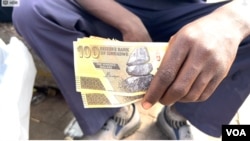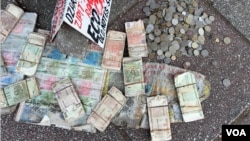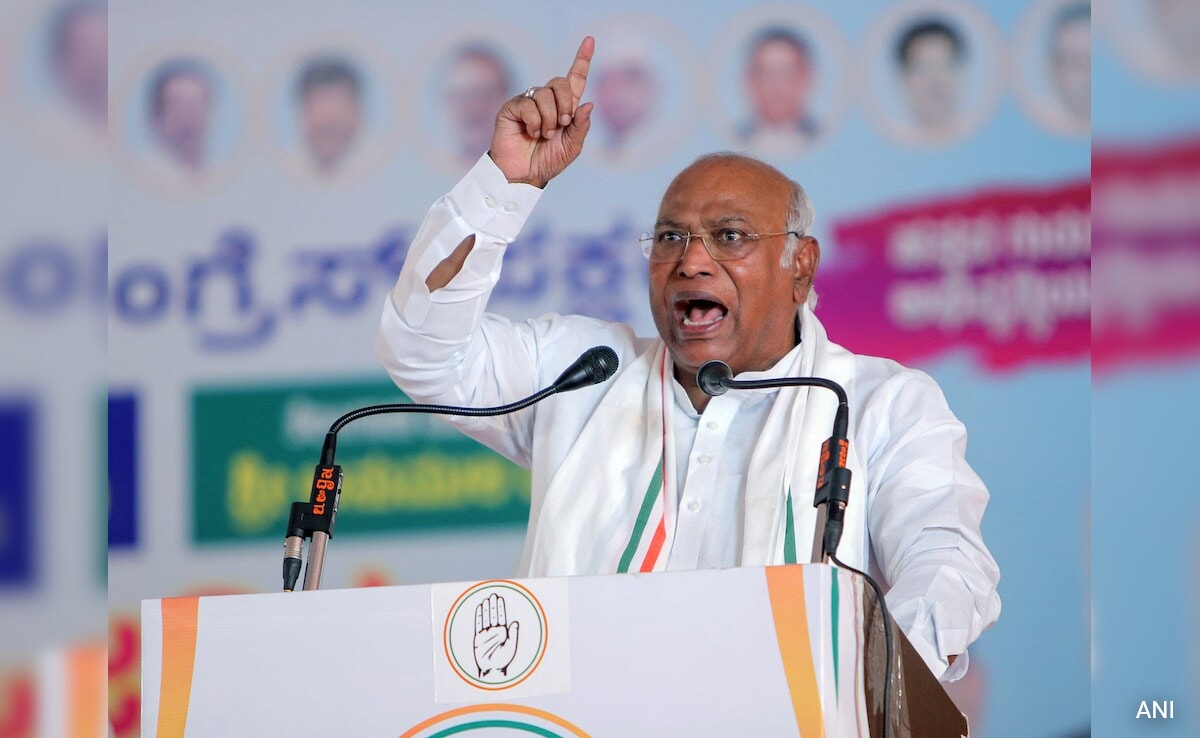Zimbabwe’s recently launched gold-backed currency is slipping on the local black market, but officials insist it is strengthening and has a bright future. Columbus Mavhunga reported from Harare.
There are even songs on the radio encouraging citizens to embrace Zimbabwe Gold (ZiG), a currency that was launched on April 5 and trades at $13.56.
Official statistics show that ZiG is currently trading at 13.41. But the price on the black market is around 20.
Chamunorwa Musengi, a street vendor in Harare, is not optimistic about the new currency currently being traded electronically, with notes and coins set to enter circulation on April 30:
“We’ll see,” he said. “Maybe this will boost our economy for a while. But I don’t see any change with the new currency because things are really tight at the moment. We’ve been through this before. When they put out the bonds, things stabilized briefly and then started to change in the market Up and down. They say the ZiG is about 13 and it will end up around 40,000 against the dollar.”
The bond refers to the currency Zimbabwe launched in 2019 after a decade of using the U.S. dollar and other currencies. The bond had lost about 80% of its value before it was officially terminated, trading at about $40,000 to the dollar.
Minibus conductor Samson Kabwe said he can’t wait to issue ZiG’s physical banknotes and coins.
“We support ZiG, especially for change,” he said. “We have no change. If ZiG notes and coins come out, the government has done a great thing. We want it like this.”
For now, commodities such as fuel will still be bought and sold in U.S. dollars, the government said.
Economics professor Gift Mugano predicts that the new currency will go the way of the old currency.
“[In] In 2016, we launched a bond backed by a $400 million loan from Afreximbank. “Afreximbank is an international bank with a high reputation. But that’s not enough to guarantee the bond’s success. So it failed. correct? Why can’t we guarantee stability? There is no continuous production in the economy because you use production to defend the economy. Secondly, there is the issue of confidence. People don’t trust the system because we have lost money several times. “
But the new governor of the Reserve Bank of Zimbabwe, John Mushayavanhu, predicts the currency will succeed because it is backed by $175 million worth of gold and other mineral reserves and $100 million in cash.
“We are doing what we are doing to ensure that our local currency does not die,” he said. “We are already in a situation where almost 85% of transactions are in U.S. dollars because [the] The local currency does not function as a store of value. We will restore this store of value so that we can begin to revitalize our currency. So we’re starting at $80 million, and as we get more reserves, we’ll gradually use more local currency. My wish is that if we get to 70-30 this year (by the end of the year), 60-40 next year, 50-50 the year after that; when we get to 50-50, people won’t care which currency they use. This way we can get back to using our local currency. “
Despite Musayawanhu’s confidence, social media is abuzz with people and traders – including government ministries – who refuse to accept the outgoing Zimbabwean currency.
Follow us on Google news ,Twitter , and Join Whatsapp Group of thelocalreport.in



















